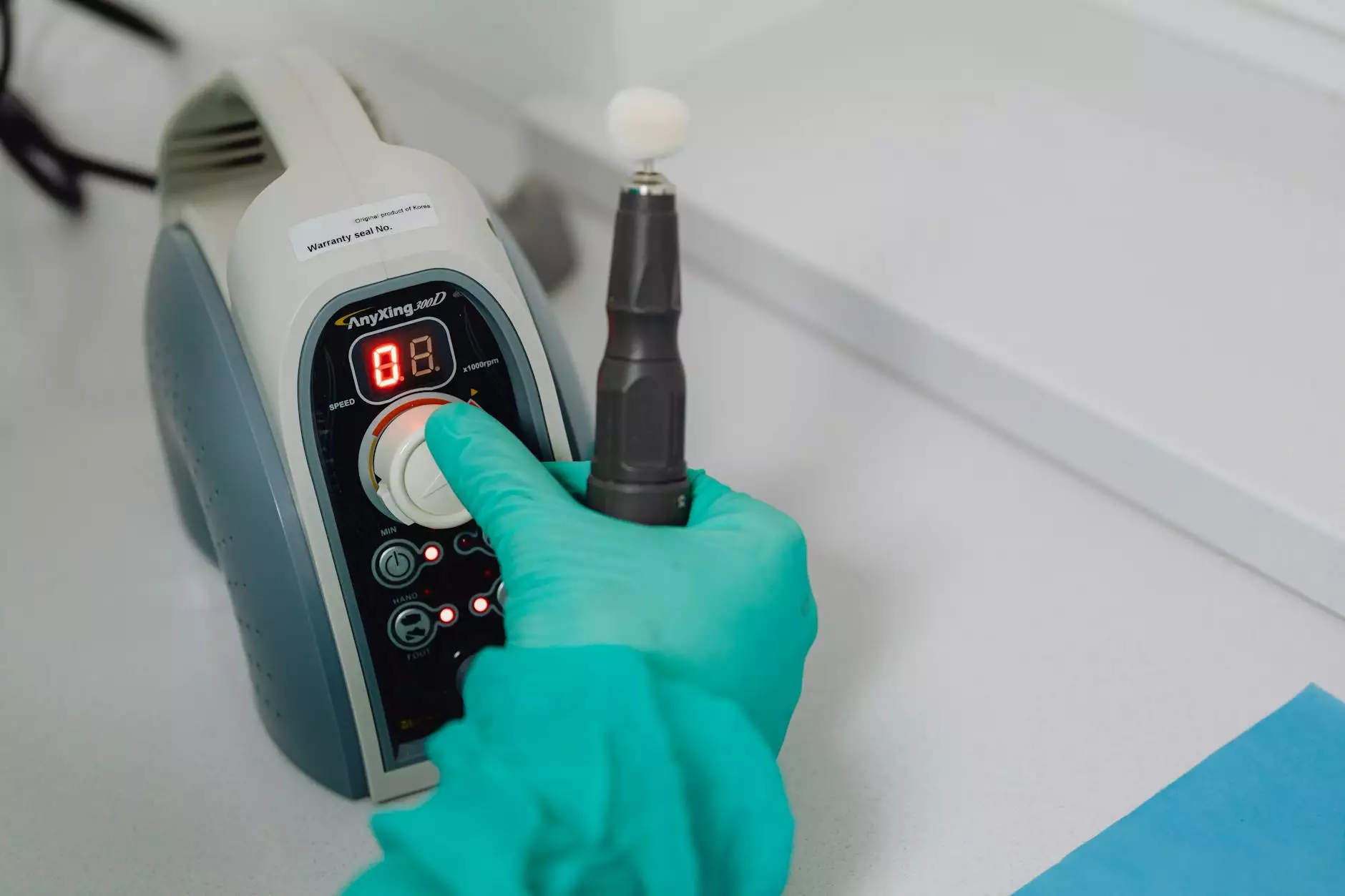Electric Injection Moulding Machines: Revolutionizing Metal Fabrication

In today's fast-paced manufacturing landscape, the demand for precision, efficiency, and sustainability is more critical than ever. One of the most advanced technologies enabling these qualities in the metal fabrication industry is the electric injection moulding machine. This article delves into the significance, benefits, and applications of electric injection moulding machines in modern manufacturing, specifically in the realm of metal fabrication.
Understanding Electric Injection Moulding Machines
The electric injection moulding machine is a type of machine used to manufacture components by melting plastic or other materials and injecting them into a mould. Unlike traditional hydraulic machines that rely on hydraulic fluids, electric machines utilize servo motors to drive the injection process, resulting in several advantages.
Key Components of Electric Injection Moulding Machines
- Clamping Unit: This component holds the mould in place during the injection process and ensures it does not open until the product has cooled.
- Injection Unit: Responsible for melting the material and injecting it into the mould with precision.
- Control Unit: The brain of the machine, allowing for adjustments in speed, pressure, and temperature.
- Mould: The custom-designed cavity where the melted material is injected to form the final product.
The Benefits of Using Electric Injection Moulding Machines
Implementing electric injection moulding machines in manufacturing processes presents numerous advantages that enhance production efficiency and product quality.
1. Enhanced Precision and Control
Electric machines offer high precision in the injection process due to their servo motor-driven technology. This allows for accurate control of injection speed, pressure, and temperature, resulting in products that meet stringent quality standards. The ability to maintain tight tolerances is vital in metal fabrication, where minor deviations can affect the entire assembly.
2. Energy Efficiency
One of the standout features of electric injection moulding machines is their energy efficiency. Compared to hydraulic systems, electrical machines consume significantly less energy. Operating costs are reduced, contributing to a more sustainable manufacturing approach while also lowering the overall environmental impact.
3. Reduced Cycle Time
Electric injection moulding machines are known for their short cycle times. The fast response time of electric motors allows for quicker actuation compared to hydraulic systems. Manufacturers can produce more parts in less time, improving productivity and reducing lead times.
4. Minimized Maintenance Requirements
With fewer moving parts and the absence of hydraulic fluid, electric injection moulding machines require less maintenance. This reliability translates into increased uptime and enhanced overall productivity in manufacturing operations.
5. Improved Product Quality
The consistent and repeatable nature of electric injection moulding ensures a uniformly high product quality. This reduction in variability is crucial in the metal fabrication sector, where components must fit together perfectly to function as intended.
Applications of Electric Injection Moulding Machines in Metal Fabrication
The versatility of electric injection moulding machines allows them to be used in various applications within the metal fabrication industry.
1. Aerospace Components
In the aerospace industry, components must meet rigorous safety and performance standards. The electric injection moulding machine enables manufacturers to produce lightweight and complex parts that are essential in modern aircraft construction.
2. Automotive Industry
Electric injection moulding plays a significant role in the automotive sector. From dashboards to electrical connectors, the high precision and reduced cycle times of electric machines allow manufacturers to produce intricate components efficiently, contributing to lighter vehicles with better fuel efficiency.
3. Medical Devices
Manufacturers in the medical field require components that not only meet strict regulatory standards but also exhibit high precision. Electric injection moulding machines allow for the production of complex medical devices with exacting tolerances, ensuring patient safety and efficacy.
4. Consumer Electronics
The rise of consumer electronics demands quick turnarounds and high precision in production. Components such as casings and internal structures benefit from the capabilities of electric injection moulding machines, providing the necessary reliability and quality.
5. Industrial Equipment
Electric injection moulding machines produce a variety of components used in industrial equipment. Their ability to create reinforced plastic parts with high strength-to-weight ratios is particularly valuable in designing tools and machinery that require durability without sacrificing weight.
Choosing the Right Electric Injection Moulding Machine
Selecting the right electric injection moulding machine involves several considerations to ensure optimal performance and suitability for your manufacturing needs.
1. Production Volume
Consider the anticipated production volume. High-volume projects may require machines capable of handling larger batches efficiently, while lower volume demands may allow for smaller, more precise machines.
2. Material Compatibility
Different electric injection moulding machines have varying capabilities when it comes to the types of materials they can process. Ensure the machine you choose is compatible with the materials you intend to use, whether they are metals, plastics, or specialty composites.
3. Product Complexity
Evaluate the complexity of the parts you intend to produce. Some machines offer advanced features such as multi-component injection or the ability to create undercuts, which are essential for complex designs.
4. Budget Considerations
Budget is a significant factor when investing in an electric injection moulding machine. While these machines can have a higher upfront cost, the long-term savings in energy and maintenance must be accounted for in the decision-making process.
The Future of Electric Injection Moulding in Metal Fabrication
As technology evolves, the landscape of electric injection moulding machines will continue to innovate. Emerging trends such as automation, Industry 4.0 integration, and the use of advanced materials will further enhance the capabilities of these machines. This evolution promises not only to improve manufacturing efficiency but also to foster sustainable practices across the industry.
1. Automation and Smart Manufacturing
With the increasing application of smart manufacturing techniques, electric injection moulding machines are becoming more intertwined with automation technologies. The integration of AI and IoT allows for real-time monitoring and adjustments, further enhancing production optimization.
2. Customization and Flexibility
As consumer preferences shift towards personalized products, electric injection moulding machines will evolve to offer greater customization options. This flexibility can meet the growing demand for bespoke components in numerous industries.
3. Sustainable Practices
The manufacturing sector is progressively moving towards sustainability, and electric injection moulding machines align with this goal through their energy efficiency and reduced waste. Future innovations may lead to even more eco-friendly manufacturing processes, including the use of bio-based materials.
Conclusion
Electric injection moulding machines represent a significant advancement in the field of manufacturing, particularly within the metal fabrication industry. Their ability to deliver high precision, energy efficiency, and reduced cycle times makes them an invaluable asset for modern manufacturers. As industries evolve to meet consumer demands and sustainability goals, embracing electric injection moulding technology will be key to staying at the forefront of innovation and competitiveness.
In summary, for businesses in the metal fabrication industry looking to enhance their production capabilities and product quality, investing in an electric injection moulding machine is a step towards a more efficient, sustainable, and successful manufacturing future. To explore the best options available, visit deepmould.net for expert guidance and a comprehensive selection of moulding machines tailored to your needs.









